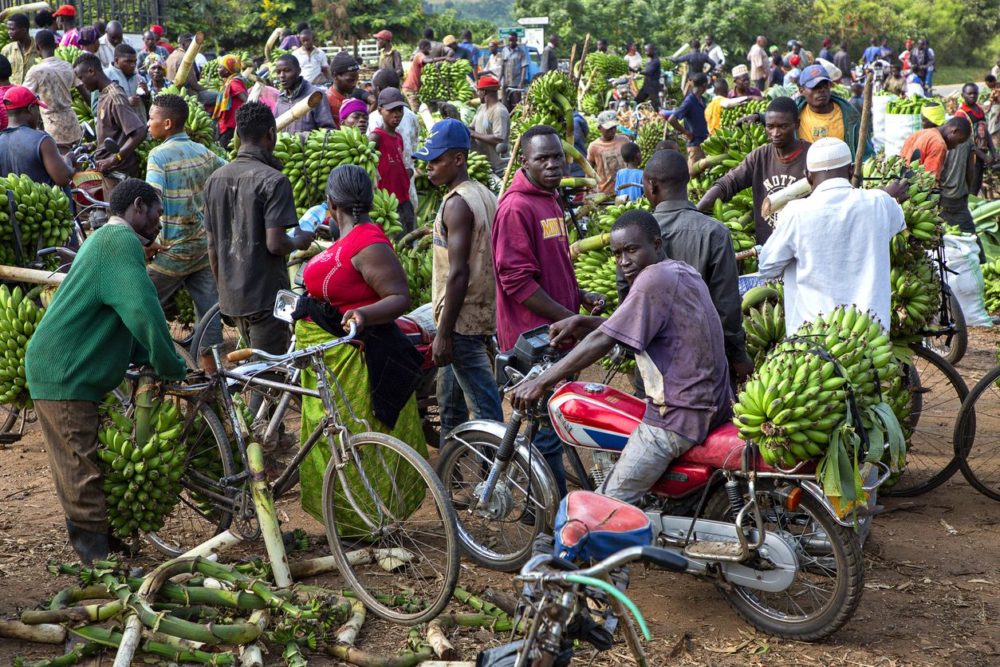Nations in East Africa must prioritize technological innovations and digitalization of food systems in order to tackle perennial food insecurity, according to a new report by London-based market insights provider Briter Bridges.
The report explores how startups and entrepreneurs are using technology to boost the efficiency of the food value chain across Ethiopia, Kenya, Rwanda, South Sudan, and Uganda.
It also considers the role of support from government policies, foreign funding, and private sector participation in creating a conducive environment for food system trailblazers.
“Digital solutions and technological advancements are essential to Africa’s agricultural transformation by increasing productivity and reducing post-harvest losses,” says Lisa With, head of research and operations at Briter Bridges.
In East Africa, the agricultural sector is an integral cog of the economy and is central to food security, job creation, and poverty alleviation – as well as being a key source of foreign exchange.
Despite its importance, growth in the sector remains stunted; while the region faces the recurring problem of food insecurity and losses in terms of livestock and livelihoods. Around 30 million people in East Africa are facing starvation, with drought a key factor. Data from the Famine Early Warning Systems Network shows that as much as half the animals in household herds have have died since the start of this year in Southern and Southeastern Ethiopia alone.
According to Briter Bridges, several social, political, economic, and environmental factors continue to threaten the region’s food systems.
These include:
- Access to markets and finance
- Poor performance of inputs
- Inaccessibility of information on best practices
- Food price volatility
- Post-harvest losses
The situation has been exacerbated by Covid-19, natural disasters, pests and plant diseases, and food waste.
Meanwhile, failings farther along the value chain — in processing, warehousing, distribution, consumption, and waste disposal — continue to expose the region to challenges of food insecurity.
Despite these challenges, a plethora of agritech, foodtech, and fintech startups has popped up to offer a new sense of optimism.
They’re inspiring a paradigm shift in farming and supply chain practices that is fast making agriculture not only more attractive as a career to younger generations, but is also grabbing the interest of foreign investors.
The transformative impacts of technology are enormous, according to With. For instance, while it is impossible to control the weather and climate, there are tools that can be utilized to mitigate and adapt to them, she says.
Weather forecasting apps and solar-powered irrigation solutions can help farmers plan their operations and protect themselves against potential losses.
Startups like Kenya’s Solar Freeze and UK-based, Africa-focused InspiraFarms have developed tech that allows farmers to put their produce in cold storage units, extending its shelf life by several weeks.
Meanwhile, crop insurance solutions such as those offered by Mali’s Oko and Kenya’s Pula can keep farmers protected against shocks and resilient in the face of unpredictability.
“Creating affordable and accessible tools [like these] to increase productivity is a potentially high-impact area for intervention,” With says.
She adds that East Africa’s food system is ripe for disruption across a range of other verticals, from farm management to pest detection, precision ag, and food logistics and distribution.
While these types of innovations are already being developed by entrepreneurs across the region, funding and other support — such as accelerator and incubator programs — remain too limited to allow the providers to grow and scale, the Briter Bridges report suggests.
Since 2015, agtech startups in Africa have raised over $375 million in disclosed funding, mostly from foreign investors; and across the five countries examined in the report, the total is just over $75 million. More than 85% of this has been invested in Kenyan companies.
Some of the biggest deals involved Twiga Foods, SunCulture, iProcure, Apollo Agriculture, and Grainpulse. Apart from the latter — which is based in Uganda — all are Kenyan.
But foreign capital isn’t enough; and government resources directed at agriculture are constrained. This means that the private sector needs to fill the funding gap as it holds immense potential to address a largely untapped market for digital services.
Moreover, the report stresses that digitalization alone cannot solve all of the challenges facing East Africa’s food system. Agricultural development is closely tied to non-tech elements such as reliable infrastructure, water supply, and irrigation capacity; as well as a logistical framework that enables the transport of goods from farms to consumers.
Addressing water scarcity, for instance, is critical, With says. A lack of adequate water means that the agricultural sector suffers from declining yields and rising food prices, which impact farmers as well as consumers.
“This is not something you can quickly develop an app for, or can solve at large with technology,” she says.





